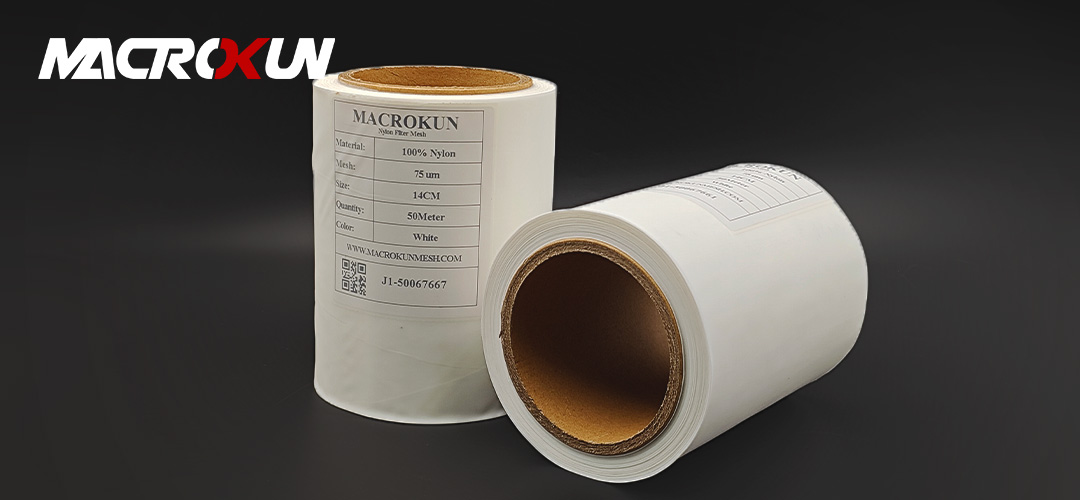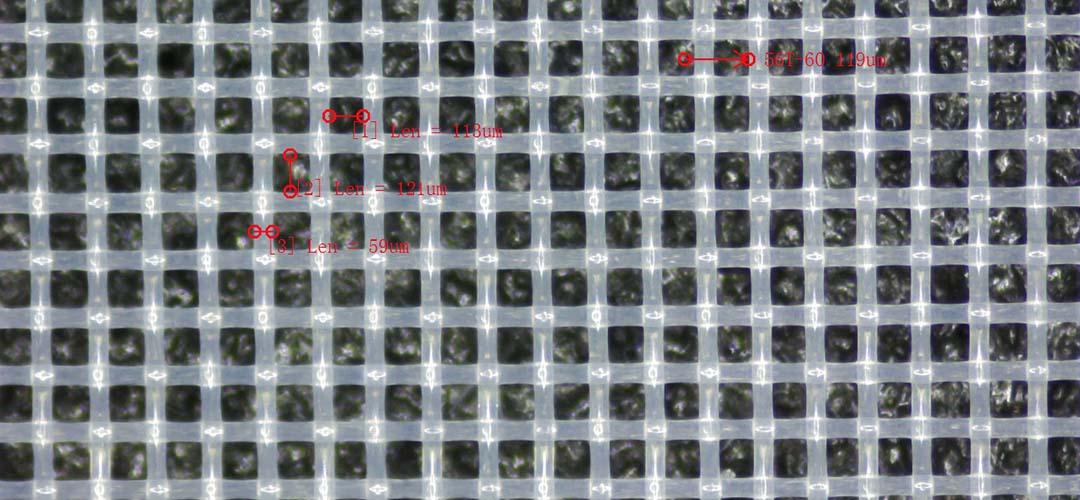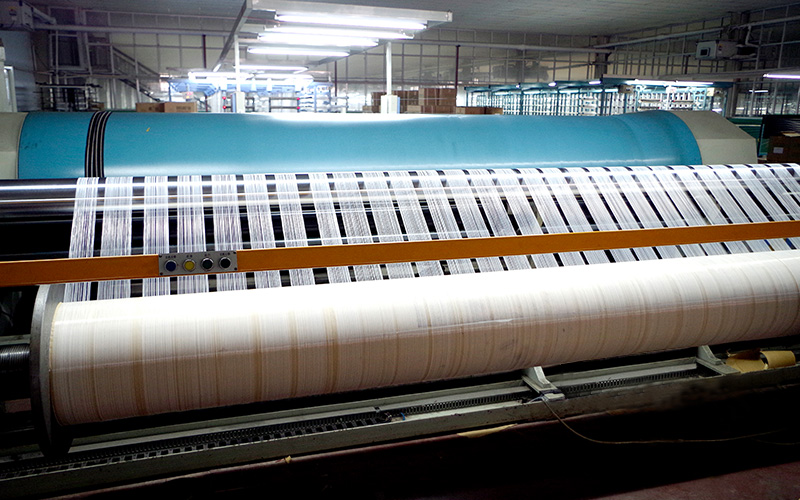Nylon cloth has emerged as a preferred material for various filtration applications due to its unique combination of durability, versatility, and performance. One of the primary benefits of using nylon cloth in filtration systems is its exceptional strength. This synthetic fabric is known for its high tensile strength, which allows it to withstand significant mechanical stress without tearing or degrading. As a result, nylon cloth can be employed in demanding environments where other materials might fail, ensuring a longer lifespan for filtration systems and reducing the need for frequent replacements.
In addition to its strength, nylon cloth exhibits remarkable resistance to a wide range of chemicals. This characteristic makes it suitable for filtering various substances, including oils, solvents, and acids, which are commonly encountered in industrial applications. The ability to maintain structural integrity and performance in the presence of harsh chemicals is a significant advantage, as it allows for greater flexibility in the types of processes that can be accommodated. Consequently, industries such as pharmaceuticals, food processing, and petrochemicals can rely on nylon cloth to meet their specific filtration needs without compromising safety or efficiency.
Moreover, nylon cloth is highly versatile, available in various mesh sizes and thicknesses. This adaptability enables users to select the appropriate fabric for their specific filtration requirements, whether they are dealing with coarse particles or fine particulates. The ability to customize the filtration process is crucial in achieving optimal results, as different applications may necessitate varying levels of filtration precision. By offering a range of options, nylon cloth empowers industries to tailor their filtration systems to meet their unique operational demands.
Another significant benefit of nylon cloth is its lightweight nature, which facilitates ease of handling and installation. Unlike heavier materials, nylon cloth can be easily cut, sewn, or shaped to fit specific filtration equipment, streamlining the setup process. This lightweight characteristic also contributes to reduced shipping costs and simpler storage solutions, making it an economically viable choice for businesses looking to optimize their operational efficiency.
Furthermore, nylon cloth is known for its excellent moisture-wicking properties. This feature is particularly beneficial in applications where moisture retention could lead to bacterial growth or other contamination issues. By effectively managing moisture levels, nylon cloth helps maintain a clean and hygienic filtration environment, which is essential in industries such as food and beverage production, where product integrity is paramount.
In addition to its functional advantages, nylon cloth is also relatively easy to clean and maintain. Many filtration systems require regular maintenance to ensure optimal performance, and the ability to wash and reuse nylon cloth can lead to significant cost savings over time. This ease of maintenance not only enhances the longevity of the filtration material but also contributes to a more sustainable approach to filtration, as it reduces waste associated with disposable filters.
In conclusion, the benefits of using nylon cloth for filtration applications are manifold. Its strength, chemical resistance, versatility, lightweight nature, moisture-wicking properties, and ease of maintenance make it an ideal choice for a wide range of industries. As businesses continue to seek efficient and reliable filtration solutions, nylon cloth stands out as a material that meets and exceeds these demands, ensuring that filtration processes are both effective and sustainable. By leveraging the advantages of nylon cloth, industries can enhance their operational efficiency while maintaining high standards of quality and safety.
Nylon cloth is a versatile material that is commonly used in a variety of filtration applications. Its durability, strength, and resistance to chemicals make it an ideal choice for filtering out impurities from liquids and gases. When choosing the right nylon cloth for your filtration needs, there are several factors to consider to ensure that you get the best results.
One of the most important factors to consider when choosing nylon cloth for filtration is the pore size. The pore size of the cloth will determine the size of particles that can be filtered out. If you are filtering out large particles, you will need a nylon cloth with larger pores. Conversely, if you are filtering out smaller particles, you will need a nylon cloth with smaller pores. It is important to choose a nylon cloth with the appropriate pore size for your specific filtration needs to ensure that it effectively removes impurities from the liquid or gas being filtered.
Another important factor to consider when choosing nylon cloth for filtration is the thickness of the cloth. Thicker nylon cloth is more durable and can withstand higher pressures and temperatures than thinner nylon cloth. If you are filtering out impurities from a liquid or gas that is under high pressure or temperature, it is important to choose a nylon cloth that is thick enough to withstand these conditions. Thicker nylon cloth is also less likely to tear or break during the filtration process, ensuring that it effectively filters out impurities without compromising the integrity of the cloth.
In addition to pore size and thickness, it is also important to consider the weave of the nylon cloth when choosing the right filtration material. The weave of the cloth will determine how tightly the fibers are packed together, which will affect the filtration efficiency of the cloth. A tighter weave will result in a more effective filtration process, as it will prevent particles from passing through the cloth. Conversely, a looser weave may allow some particles to pass through the cloth, reducing the effectiveness of the filtration process. It is important to choose a nylon cloth with a weave that is appropriate for the size of particles you are filtering out to ensure that it effectively removes impurities from the liquid or gas being filtered.

When choosing nylon cloth for filtration, it is also important to consider the chemical compatibility of the material. Nylon cloth is resistant to many chemicals, making it suitable for a wide range of filtration applications. However, some chemicals may degrade or damage nylon cloth, reducing its effectiveness as a filtration material. It is important to choose a nylon cloth that is compatible with the chemicals present in the liquid or gas being filtered to ensure that it effectively removes impurities without being damaged in the process.
In conclusion, nylon cloth is a durable and versatile material that is ideal for a wide range of filtration applications. When choosing the right nylon cloth for your filtration needs, it is important to consider factors such as pore size, thickness, weave, and chemical compatibility to ensure that you get the best results. By selecting the appropriate nylon cloth for your specific filtration needs, you can effectively remove impurities from liquids and gases, ensuring that your filtration process is efficient and reliable.
Nylon cloth is a versatile material that has found a wide range of applications in various industries, including filtration. Its durability, strength, and resistance to abrasion make it an ideal choice for filtration needs in different settings. From industrial processes to medical applications, nylon cloth has proven to be a reliable and efficient material for filtering out impurities and contaminants.
One of the key advantages of using nylon cloth for filtration is its ability to withstand high temperatures and harsh chemicals. This makes it suitable for use in industries where filtration is critical for maintaining the quality of products. For example, in the food and beverage industry, nylon cloth is commonly used in filtration processes to remove particles and impurities from liquids such as juices, oils, and syrups. Its resistance to chemicals ensures that the filtration process is efficient and effective, without compromising the quality of the final product.
In the pharmaceutical industry, nylon cloth is used in filtration processes to remove bacteria, viruses, and other contaminants from liquids and gases. Its durability and strength make it an ideal material for filtering out impurities, ensuring that the final product meets the required standards for purity and safety. Nylon cloth is also used in medical applications, such as in the production of surgical masks and gowns, where its ability to filter out particles and contaminants is essential for protecting healthcare workers and patients.

Another advantage of using nylon cloth for filtration is its versatility. It can be woven into different shapes and sizes, making it suitable for a wide range of filtration needs. Whether it is used in liquid filtration, air filtration, or gas filtration, nylon cloth can be tailored to meet specific requirements and specifications. This flexibility makes it a popular choice for industries that require customized filtration solutions.
Nylon cloth is also easy to clean and maintain, making it a cost-effective option for filtration needs. Its resistance to abrasion ensures that it can withstand repeated use and cleaning without losing its effectiveness. This durability makes nylon cloth a long-lasting solution for filtration needs, reducing the need for frequent replacements and repairs.

Innovations in the manufacturing process have further enhanced the performance of nylon cloth for filtration. Advanced weaving techniques and coatings have improved its filtration efficiency, making it even more effective at removing impurities and contaminants. These innovations have expanded the range of applications for nylon cloth in filtration, making it a versatile and reliable material for various industries.
In conclusion, nylon cloth is a durable and versatile material that is well-suited for all filtration needs. Its strength, resistance to chemicals, and flexibility make it an ideal choice for industries that require efficient and reliable filtration solutions. From food and beverage production to pharmaceuticals and medical applications, nylon cloth has proven to be a valuable asset in ensuring the quality and safety of products. With ongoing innovations in manufacturing processes, nylon cloth continues to be a leading material for filtration needs in various industries.
Pre: Different Nylon Filter Mesh: Explore a Wide Range of Filtration Options
Next: Cheap Nylon Filter Mesh: Affordable Solutions Without Compromise

MACROKUN has established long-term and stable cooperative relations with many transportation companies such as China Post, DHL, FEDEX, USPS, UPS, etc. Of course, MACROKUN can also provide air and sea transportation. The powerful logistics system enables all MACROKUN'S Printing Mesh, Filter Mesh and Filter Bags and so on to be easily and efficiently transported to any place. For quotes and inquiries, please email our sales team.





